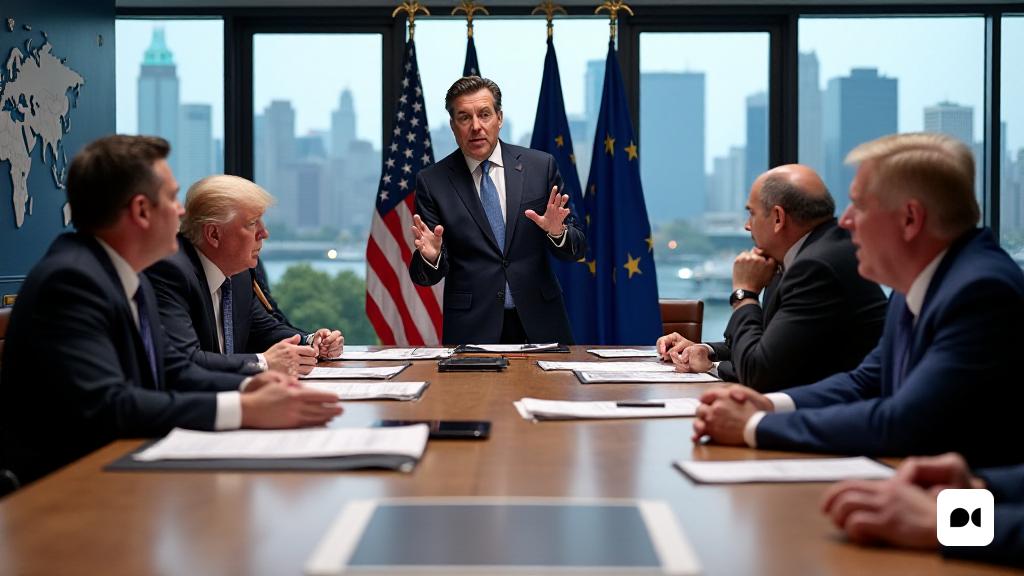The Stakes of Trade Relations
In the complex arena of international trade, the European Union (EU) is standing firm against escalating tensions initiated by the United States. EU Trade Commissioner Maros Sefcovic emphasized a commitment to achieving a mutually beneficial trade agreement grounded in cooperation rather than intimidation.
Trump’s Threats and Their Implications
The current climate intensified following U.S. President Donald Trump’s announcement of a potential 50% tariff on all imports from the EU. This move has ignited fears of a trade war that could have severe repercussions for both economies.
The Timeline of Tensions
Trump’s impatience with ongoing negotiations was evident as he declared that discussions with the EU were stagnating. His earlier imposition of tariffs on a range of countries, including a preliminary 20% tax on EU goods, further complicated the situation, forcing stakeholders to reconsider their strategies.
Responses from European Leaders
In light of these developments, European leaders are advocating for a resolution through dialogue. Irish Prime Minister Micheál Martin remarked, ‘We do not need to go down this road,’ urging a focus on negotiations to ensure sustainable outcomes.
A Unified Front
Trade ministers from France and Germany echoed this sentiment, emphasizing de-escalation and the necessity of collaborative efforts to navigate these turbulent waters. Dutch Prime Minister Dick Schoof reaffirmed support for the EU’s collective approach, illustrating a unified stance among member states.
Potential Paths Forward
As discussions unfold, experts suggest that the U.S. might explore individual negotiations with EU countries, a strategy that could further complicate the bloc’s unified position. Stephen Moore, an economic advisor, indicated that a major goal of Trump’s administration is to reduce reliance on Chinese influence, which could shift the dynamics of global trade.
Tariffs and Market Reactions
The financial markets reacted swiftly to the renewed threats, with significant declines observed in both U.S. and European stock indices. This downturn highlights the precarious nature of the situation, where trade disputes can have immediate impacts on economic stability.
A Future of Trade Relations
As both sides brace for what may come next, the importance of maintaining open channels of communication cannot be overstated. The outcome of these negotiations will not only shape the future of U.S.-EU relations but also set a precedent for international trade practices globally.

